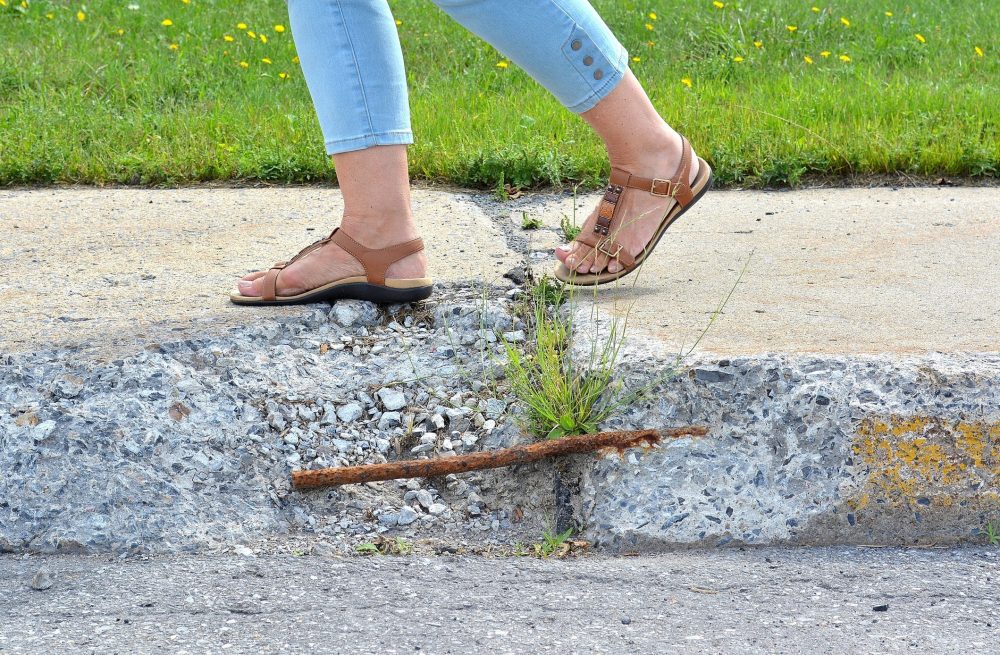Residential homeowners are not liable for injuries caused by the conditions of sidewalks abutting their properties, according to the New Jersey Appellate Court, even if that property could be used to generate multifamily rental income. Rather, liability turns on whether the property was actually being used for commercial purposes at the time of the accident.
In a case recently decided by the New Jersey Appellate Court, the plaintiff, Nivia, fell on an uneven sidewalk in front of a property owned by the defendants, Mark and Anthony. The property was a vacant, two-family home and was undergoing renovations at the time. Nivia suffered broken ribs and injuries to her back and shoulders as a result of the fall.
Nivia sued Mark and Anthony for failing to maintain the sidewalk in front of the property. When Mark and Anthony moved for summary judgment on the grounds that only commercial landowners, as opposed to residential landowners, can be held liable for defective sidewalks, Nivia argued that the test for determining liability was whether, at the time of the accident, the property had the potential to generate income. Although Mark and Anthony stated that their intention for buying the house was to renovate it for Mark to live in, they at some point changed their mind and began renting it out approximately six months after Nivia’s accident. To support her argument, Nivia cited a New Jersey case in which the owner of a vacant storefront was held liable for a sidewalk injury even though the storefront was vacant, boarded up and locked behind an iron gate. In that case, the court reasoned that the vacant store had the capacity to generate income and had done so in the recent past, so it was deemed a commercial property.
The court here, however, disagreed with Nivia, reasoning that the test is the status of the property at the time of the accident, not whether it has some capacity to generate income. The court reasoned that the record did not support a conclusion that the property was of commercial status at the time of the accident: the property was not being marketed to renters at the time of the accident and the owners derived no economic benefit at the time. Rather, the court relied on the “well-settled law” that protects residential homeowners from liability against sidewalk injuries unless the owner engaged in negligent construction or repair. As a result, the Appellate Court affirmed summary judgment for the defendants Mark and Anthony.
If you are a plaintiff who was injured outside of a property that you think may have been used for commercial purposes or are a residential property owner facing a lawsuit for a sidewalk injury, feel free to contact Ward, Shindle & Hall.

